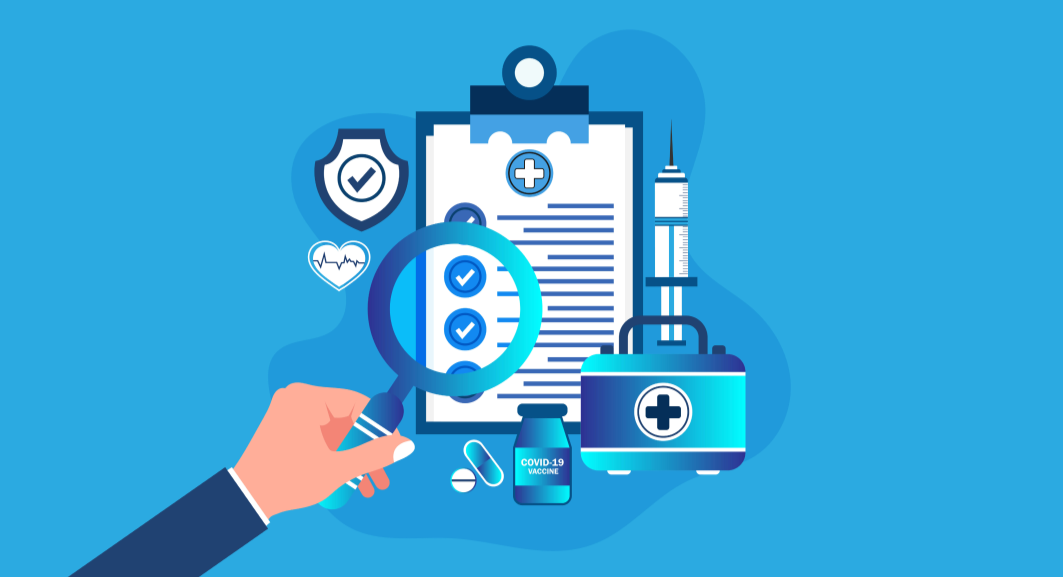by Mrudula Kulkarni
6 minutes
Regulatory Affairs in Pharmaceuticals
the critical role of regulatory affairs in the pharmaceutical industry, highlighting its importance in safeguarding public health

In many of our articles, you’ve probably read something along the lines of, “Pharmaceutical companies must remain compliant with stringent regulatory guidelines.” But, what does this really mean? What role do regulatory agencies play in the pharmaceutical industry, and why is regulatory complaince so important? We’ll address these questions in this article.
But first, let’s understand what regulatory affairs really means. Pharmaceutical regulatory affairs is a multifaceted discipline dedicated to navigating the complex regulatory landscape governing the development, manufacturing, and commercialization of pharmaceutical products. It involves interpreting and implementing regulations, guidelines, and standards dictated by local and global regulatory authorities to ensure that products meet stringent requirements for safety, efficacy, and quality. As pharma operations evolve, digital transformation in pharma is influencing how regulatory strategies are planned and executed across R&D and compliance teams.
So, who are these regulatory agencies defining how pharma companies should operate?
Most Well-Known Regulatory Agencies
1. Food and Drug Administration (FDA):
The United States FDA is the federal agency of the Department of Health and Human Services in the USA. It sets guidelines, conducts rigorous evaluations of drug safety and efficacy, reviews marketing authorization applications, and monitors manufacturing practices for products that will be sold in the USA.
2. European Medicines Agency (EMA):
The EMA is an authoritative body tasked with evaluating and approving medicines for use within the European Union (EU) and the European Economic Area (EEA). Its centralized marketing authorization procedure simplifies the regulatory process for pharmaceutical companies seeking to market their products across multiple EU member states simultaneously.
3. Pharmaceuticals and Medical Devices Agency (PMDA):
In Japan, the PMDA plays a pivotal role in ensuring the safety, efficacy, and quality of pharmaceuticals and medical devices. The PMDA conducts thorough reviews of new drugs and medical devices, evaluates clinical trial data, and grants marketing approval for products that meet regulatory requirements.
4. Medicines and Healthcare products Regulatory Agency (MHRA):
In the United Kingdom, the MHRA serves as the regulatory authority overseeing medicines and medical devices. With the UK's departure from the EU, the MHRA has assumed additional responsibilities for regulating medicines and medical devices in the UK market, ensuring compliance with regulatory standards and facilitating access to safe and effective treatments.
5. International Council for Harmonisation of Technical Requirements for Pharmaceuticals for Human Use (ICH):
The ICH is a unique collaborative initiative involving regulatory authorities and pharmaceutical industry representatives from around the world. The ICH guidelines, develop harmonized guidelines and standards to streamline the regulatory process and facilitate the global development and registration of pharmaceutical products.
Other countries have regulatory agencies that regulate how pharmaceutical products are manufactured, marketed and sold in their local regions. For example, Swedish Medical Products Agency operates in Sweden, Swissmedic in Switzerland, and the Central Drugs Standard Control Organization in India.
Role of Regulatory Agencies
The primary goal of regulatory agencies is to ensure the pharma product available to patients is safe, effective, and high-quality. To this end, they undertake many processes.
Drug Approval
Regulatory agencies have the final authority on whether the product can be marketed or not. They conduct several rigorous tests, analyze all data, study production processes, and ensure compliance before providing final approval.
Compliance
Regulatory agencies also check whether pharma companies comply with guidelines. This includes regular facility inspections, frequent documentation requests, product testing, and post-market product surveillance. If a company is found non-complaint, the authorities have the freedom to decide the consequences.
Post-Marketing Surveillance
Regulatory authorities oversee pharmacovigilance activities, monitoring and evaluating adverse events, medication errors, and product quality issues reported by healthcare professionals and patients. By conducting ongoing surveillance and risk management activities, they contribute to the continuous improvement of pharmaceutical products and the mitigation of potential risks to patients.
In parallel, regulatory frameworks must also consider the evolving global manufacturing challenges in pharma, especially those impacting supply chains, scale-up, and product quality.
What Are the Challenges in Pharmaceutical Regulatory Affairs?
While it sounds simple enough to follow a set of guidelines, in reality, it’s a lot more complex. Guidelines are always evolving because regulatory authorities want to (rightly) ensure the product’s safety. Hence, companies often face several challenges.
1. Evolving Regulatory Landscape
The regulatory landscape in the pharmaceutical industry is constantly evolving, with new regulations, guidelines, and standards being introduced regularly by regulatory authorities worldwide. Keeping abreast of these changes and ensuring compliance across multiple jurisdictions poses a significant challenge for regulatory affairs professionals, requiring continuous monitoring, interpretation, and implementation of regulatory requirements.
2. Globalization and Harmonization
The globalization of the pharmaceutical industry has led to increased complexity in regulatory affairs, with companies operating in multiple regions facing diverse regulatory requirements and standards. Achieving regulatory harmonization across different markets remains a challenge, as disparities in regulations and regulatory processes can hinder market access and delay product approvals.
3. Technological Advancements
Rapid technological advancements, such as artificial intelligence, big data analytics, and digital health technologies, are transforming the pharmaceutical industry and introducing new complexities into regulatory affairs. Regulatory professionals must navigate the regulatory implications of emerging technologies, ensuring that regulatory frameworks remain relevant and adaptable to the evolving landscape of digital health and innovation.
4. Data Integrity and Transparency
Maintaining data integrity and ensuring transparency throughout the regulatory process are critical challenges facing regulatory affairs professionals. With increasing scrutiny on data integrity issues and transparency requirements, regulatory professionals must implement robust data management systems, adhere to Good Documentation Practices (GDP), and ensure the accuracy and reliability of data submitted to regulatory authorities.
5. Regulatory Compliance and Enforcement
Ensuring regulatory compliance and addressing enforcement actions are perennial challenges for pharmaceutical companies and regulatory affairs professionals. Non-compliance with regulatory requirements can result in significant financial penalties, product recalls, and damage to reputation. Companies are responding by adopting robust compliance and CAPA systems in pharma that integrate AI to proactively manage regulatory obligations. Regulatory affairs professionals must proactively monitor regulatory changes, implement compliance strategies, and mitigate risks to ensure adherence to regulatory requirements and avoid regulatory sanctions.
New Global Regulatory Trends
1. Digital Transformation
The future of regulatory affairs in the pharmaceutical industry is closely intertwined with digital transformation. Advances in technology, such as electronic submissions, cloud-based regulatory platforms, and AI-powered regulatory intelligence tools, are revolutionizing regulatory processes and enhancing efficiency, collaboration, and compliance in regulatory affairs.
2. Real-World Evidence and Patient-Centricity
There is a growing emphasis on leveraging real-world evidence (RWE) and incorporating patient-centric approaches into regulatory decision-making. Regulatory agencies are increasingly recognizing the value of RWE in supplementing traditional clinical trial data and informing regulatory decisions. Patient engagement and input are also becoming integral to the regulatory process, with regulatory agencies seeking to incorporate patient perspectives into drug development and evaluation.
3. Regulatory Science and Innovation
Regulatory science is evolving to keep pace with advances in science and technology, enabling regulatory agencies to adapt regulatory frameworks to accommodate innovative therapies and technologies. Collaborative initiatives, such as the International Council for Harmonisation of Technical Requirements for Pharmaceuticals for Human Use (ICH), are driving harmonization of regulatory standards and promoting innovation in drug development and regulatory review processes.
4. Risk-Based Approaches
Regulatory agencies are increasingly adopting risk-based approaches to regulatory decision-making, focusing resources on areas of greatest risk to public health. This shift towards risk-based regulation allows regulatory authorities to prioritize resources, streamline regulatory processes, and expedite access to innovative therapies for patients with unmet medical needs.
5. Digital submission
Pharma companies and regulatory agencies are shifting towards structured electronic submissions because these allow all parties to track, update and review all documents. The structured approach provided by digital submissions is simplifying regulatory submissions for companies, reducing submission time, review processes, and costs. Technologies like digital twins in pharma manufacturing are also streamlining process validation and real-time regulatory insights.
6. AI-supported compliance
Another major shift in regulatory affairs is the integration of AI tools to simplify and automate regulatory tasks such as document preparation, data analysis, and report submission. Want to learn more about how AI is transforming compliance? Read our article on AI in Pharma Compliance to learn more.
So, given how complex the real-world regulatory requirements are, we know some tips that might help you.
Best Practices for Regulatory Readiness
Training isn’t optional
Regularly train all teams on regulatory guidelines. Such activities will allow the staff to remain compliant and understand evolving guidelines. Team leads can conduct mock inspections or report submission drills to simulate real-world expectations and train their subordinates. Furthermore, when guidelines are updated or when internal changes are made, employees should be given refresher courses to ensure they understand and can implement the new changes in their jobs.
Collaborate with EVERYONE
Regulatory affairs isn’t a one-team job. It affects all teams in all departments of the organization. Consistent data sharing across the organization can help everyone understand how other teams ensure compliance in their operations. One method to achieve this is regular cross-functional meetings where regulatory compliance activities and initiatives are discussed.
Implement a document storage system
An important part of regulatory affairs is data: data on existing and redundant processes, on manufacturing procedures, products, etc. Extensive data is requested in regulatory inspections. So, to prepare yourself for such inspections, you need to appropriately manage your data. The best way to do this is to implement a good, reliable, and standardized document management system, which provides templates, protocols, and access control for all data.
Of course, we’re no experts in regulatory submissions. Do you know any tips we’ve missed? Let us know in the comments.
And while regulatory hurdles are complex, they’re often preceded by early-stage drug discovery challenges that shape downstream compliance efforts.
Conclusion
Let’s get real for a minute: We know that regulatory challenges are not easy to solve. In fact, they can be time-consuming and sometime expensive to overcome. But, ultimately regulatory agencies exist for a reason: to keep people safe. Regulatory agencies define acceptable limits and safe concentrations so that all pharma products can be consumed safely. But, instead of thinking of them as the patient’s advocate, we should also think of them as the pharma company’s defender. After all, they ensure pharma companies don’t have liabilities.
FAQs
Q1. What is the role of Regulatory Affairs in Pharmaceuticals and why is it important for public health?
Regulatory Affairs in Pharmaceuticals plays a critical role by navigating the complex regulatory landscape involved in drug development, manufacturing, and commercialization. It ensures that pharmaceutical products are safe, effective, and of high quality, thereby protecting public health through compliance with regulatory standards.
Q2. Which are the key regulatory agencies governing pharmaceuticals globally?
The main regulatory agencies include the Food and Drug Administration (FDA) in the USA, European Medicines Agency (EMA) in the EU, Pharmaceuticals and Medical Devices Agency (PMDA) in Japan, Medicines and Healthcare products Regulatory Agency (MHRA) in the UK, and the International Council for Harmonisation (ICH) which provides global guidelines.
Q3. What challenges do pharmaceutical companies face in Regulatory Affairs today?
Pharmaceutical Regulatory Affairs faces challenges such as an evolving regulatory landscape, globalization and harmonization of regulations, rapid technological advancements, ensuring data integrity and transparency, as well as maintaining compliance amid stringent enforcement measures.
Q4. How are new global regulatory trends impacting pharmaceutical regulation?
New global trends include digital transformation of regulatory processes, increased use of real-world evidence (RWE), patient-centric approaches to drug development and evaluation, advancements in regulatory science and innovation, all aimed at improving efficiency and responsiveness to emerging therapies.
Q5. What is the significance of real-world evidence (RWE) and patient-centricity in current regulatory decision-making?
Regulatory agencies increasingly recognize RWE's value as a supplement to clinical trial data for informed decision-making. Patient engagement has become integral to regulatory processes, with agencies actively incorporating patient perspectives to better understand treatment impacts and improve drug evaluation.
Q6. How are technological innovations like AI influencing pharmaceutical Regulatory Affairs?
Technological innovations such as AI tools are being integrated into document preparation, data analysis, and report submission automation within regulatory tasks. Additionally, there is a shift towards structured electronic submissions which simplify regulatory filings, reduce review times and costs while streamlining compliance efforts.




